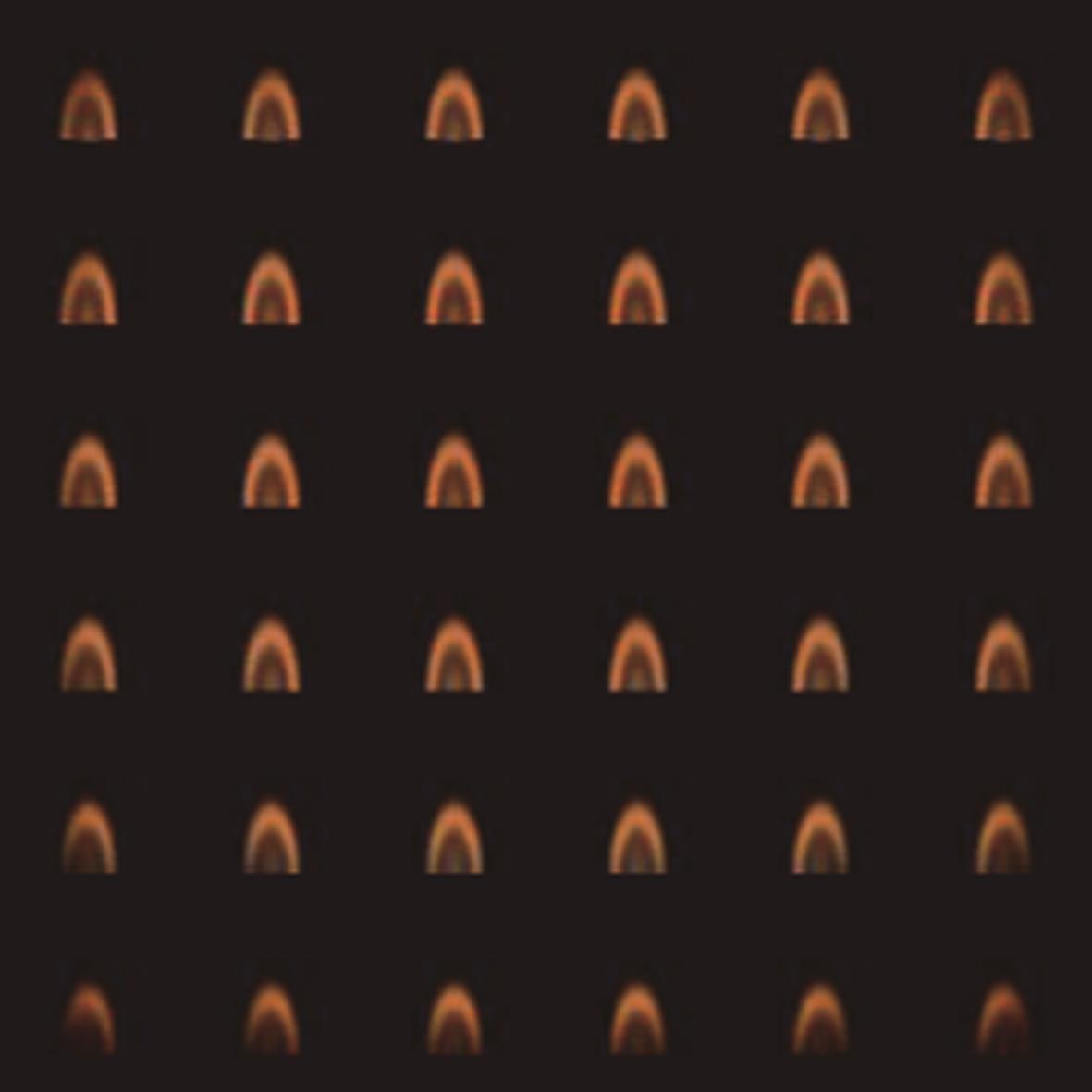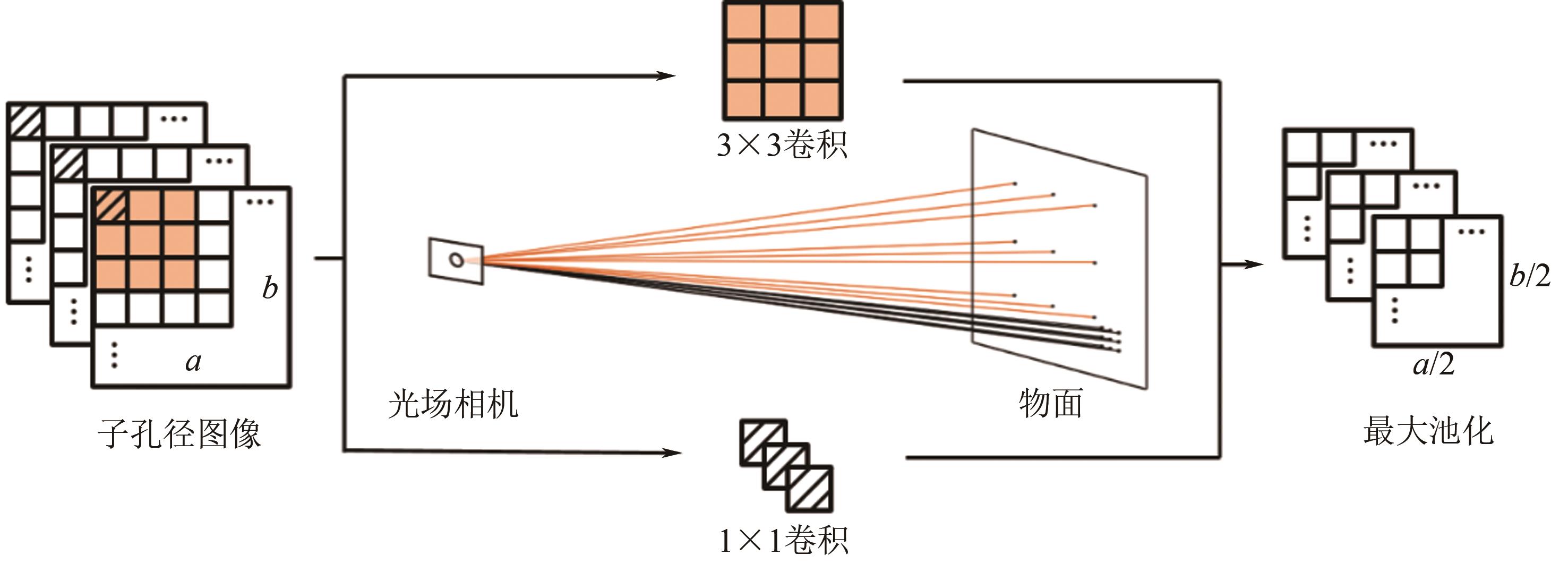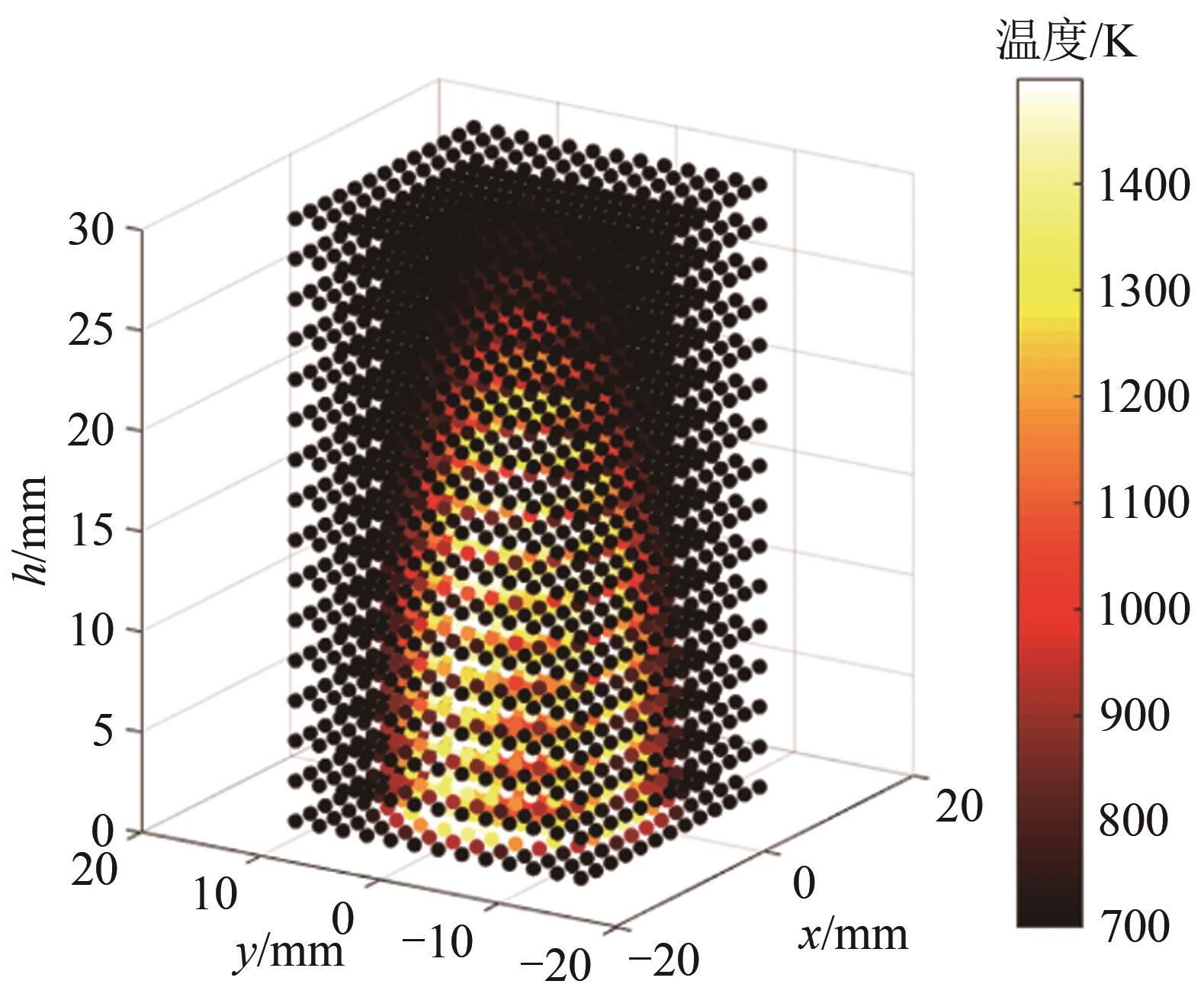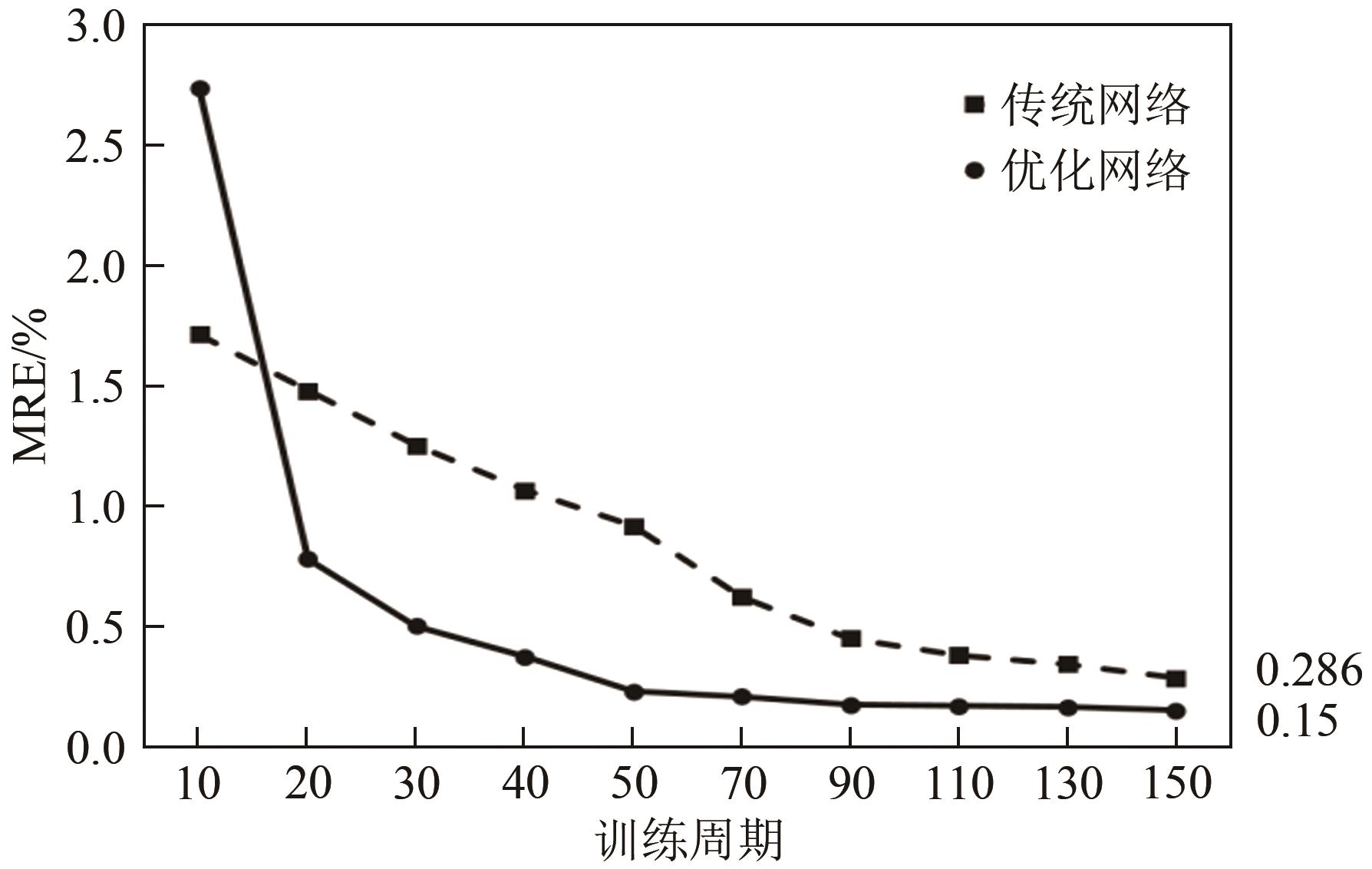Chemical Industry and Engineering Progress ›› 2024, Vol. 43 ›› Issue (2): 823-829.DOI: 10.16085/j.issn.1000-6613.2023-1446
• Column: multiphase flow test • Previous Articles Next Articles
Optimization method for light-field feature extraction in flame temperature field reconstruction
SHAN Liang1( ), HUA Xiajie1, NIU Yufeng1, ZHAO Tengfei1, HONG Bo1, KONG Ming2(
), HUA Xiajie1, NIU Yufeng1, ZHAO Tengfei1, HONG Bo1, KONG Ming2( )
)
- 1.Key Laboratory of Electromagnetic Wave Information Technology and Metrology of Zhejiang Province, College of Information Engineering, China Jiliang University, Hangzhou 310018, Zhejiang, China
2.College of Metrology and Measurement Engineering, China Jiliang University, Hangzhou 310018, Zhejiang, China
-
Received:2023-08-21Revised:2023-11-05Online:2024-03-07Published:2024-02-25 -
Contact:KONG Ming
面向光场火焰温度场重建的特征提取优化方法
单良1( ), 华夏杰1, 牛玉风1, 赵腾飞1, 洪波1, 孔明2(
), 华夏杰1, 牛玉风1, 赵腾飞1, 洪波1, 孔明2( )
)
- 1.中国计量大学信息工程学院,浙江省电磁波信息技术与计量检测重点实验室,浙江 杭州 310018
2.中国计量大学计量测试工程学院,浙江 杭州 310018
-
通讯作者:孔明 -
作者简介:单良(1979—),女,教授,硕士生导师,研究方向为信号处理、光电检测等。E-mail: lshan@cjlu.edu.cn。 -
基金资助:国家自然科学基金(51874264)
CLC Number:
Cite this article
SHAN Liang, HUA Xiajie, NIU Yufeng, ZHAO Tengfei, HONG Bo, KONG Ming. Optimization method for light-field feature extraction in flame temperature field reconstruction[J]. Chemical Industry and Engineering Progress, 2024, 43(2): 823-829.
单良, 华夏杰, 牛玉风, 赵腾飞, 洪波, 孔明. 面向光场火焰温度场重建的特征提取优化方法[J]. 化工进展, 2024, 43(2): 823-829.
share this article
Add to citation manager EndNote|Ris|BibTeX
URL: https://hgjz.cip.com.cn/EN/10.16085/j.issn.1000-6613.2023-1446
| 试验号 | 因素 | ||
|---|---|---|---|
| A(图像格式) | B(CBAM) | C(HFEM) | |
| 1 | 1(MPI) | 1(不采用) | 1(不采用) |
| 2 | 1 | 1 | 2(采用) |
| 3 | 1 | 2(采用) | 1 |
| 4 | 1 | 2 | 2 |
| 5 | 2(SAI) | 1 | 1 |
| 6 | 2 | 1 | 2 |
| 7 | 2 | 2 | 1 |
| 8 | 2 | 2 | 2 |
| 试验号 | 因素 | ||
|---|---|---|---|
| A(图像格式) | B(CBAM) | C(HFEM) | |
| 1 | 1(MPI) | 1(不采用) | 1(不采用) |
| 2 | 1 | 1 | 2(采用) |
| 3 | 1 | 2(采用) | 1 |
| 4 | 1 | 2 | 2 |
| 5 | 2(SAI) | 1 | 1 |
| 6 | 2 | 1 | 2 |
| 7 | 2 | 2 | 1 |
| 8 | 2 | 2 | 2 |
| 试验号 | 因素 | 指标 | |||||||
|---|---|---|---|---|---|---|---|---|---|
| A | B | A×B | C | C×A | B×C | 误差项 | MRE/% | MMRE/% | |
| 1 | 1 | 1 | 1 | 1 | 1 | 1 | 1 | 0.288 | 3.513 |
| 2 | 1 | 1 | 1 | 2 | 2 | 2 | 2 | 0.278 | 3.645 |
| 3 | 1 | 2 | 2 | 1 | 1 | 2 | 2 | 0.387 | 2.858 |
| 4 | 1 | 2 | 2 | 2 | 2 | 1 | 1 | 0.343 | 2.794 |
| 5 | 2 | 1 | 2 | 1 | 2 | 1 | 2 | 0.620 | 3.721 |
| 6 | 2 | 1 | 2 | 2 | 1 | 2 | 1 | 0.487 | 3.947 |
| 7 | 2 | 2 | 1 | 1 | 2 | 2 | 1 | 0.250 | 3.987 |
| 8 | 2 | 2 | 1 | 2 | 1 | 1 | 2 | 0.155 | 2.287 |
| MRE Kj1 | 1.296 | 1.674 | 0.971 | 1.545 | 1.317 | 1.406 | 1.368 | ||
| MRE Kj2 | 1.512 | 1.135 | 1.837 | 1.264 | 1.491 | 1.402 | 1.440 | ||
| MMRE Kj1 | 12.810 | 14.826 | 13.431 | 14.078 | 12.605 | 12.314 | 14.241 | ||
| MMRE Kj2 | 13.941 | 11.925 | 13.320 | 12.673 | 14.146 | 14.437 | 12.510 | ||
| 试验号 | 因素 | 指标 | |||||||
|---|---|---|---|---|---|---|---|---|---|
| A | B | A×B | C | C×A | B×C | 误差项 | MRE/% | MMRE/% | |
| 1 | 1 | 1 | 1 | 1 | 1 | 1 | 1 | 0.288 | 3.513 |
| 2 | 1 | 1 | 1 | 2 | 2 | 2 | 2 | 0.278 | 3.645 |
| 3 | 1 | 2 | 2 | 1 | 1 | 2 | 2 | 0.387 | 2.858 |
| 4 | 1 | 2 | 2 | 2 | 2 | 1 | 1 | 0.343 | 2.794 |
| 5 | 2 | 1 | 2 | 1 | 2 | 1 | 2 | 0.620 | 3.721 |
| 6 | 2 | 1 | 2 | 2 | 1 | 2 | 1 | 0.487 | 3.947 |
| 7 | 2 | 2 | 1 | 1 | 2 | 2 | 1 | 0.250 | 3.987 |
| 8 | 2 | 2 | 1 | 2 | 1 | 1 | 2 | 0.155 | 2.287 |
| MRE Kj1 | 1.296 | 1.674 | 0.971 | 1.545 | 1.317 | 1.406 | 1.368 | ||
| MRE Kj2 | 1.512 | 1.135 | 1.837 | 1.264 | 1.491 | 1.402 | 1.440 | ||
| MMRE Kj1 | 12.810 | 14.826 | 13.431 | 14.078 | 12.605 | 12.314 | 14.241 | ||
| MMRE Kj2 | 13.941 | 11.925 | 13.320 | 12.673 | 14.146 | 14.437 | 12.510 | ||
| 源 | MRE显著性 | MMRE显著性 |
|---|---|---|
| 图像格式 (A) | 0.204 | 0.631 |
| CBAM (B) | 0.160 | 0.566 |
| HFEM (C) | 0.085 | 0.342 |
| A×B | 0.053 | 0.959 |
| B×C | 0.249 | 0.537 |
| A×C | 0.964 | 0.435 |
| 源 | MRE显著性 | MMRE显著性 |
|---|---|---|
| 图像格式 (A) | 0.204 | 0.631 |
| CBAM (B) | 0.160 | 0.566 |
| HFEM (C) | 0.085 | 0.342 |
| A×B | 0.053 | 0.959 |
| B×C | 0.249 | 0.537 |
| A×C | 0.964 | 0.435 |
| 因素 | A1(MPI) | A2(SAI) |
|---|---|---|
| B1(不采用CBAM) | 0.566 | 1.107 |
| B2(采用CBAM) | 0.730 | 0.405 |
| 因素 | A1(MPI) | A2(SAI) |
|---|---|---|
| B1(不采用CBAM) | 0.566 | 1.107 |
| B2(采用CBAM) | 0.730 | 0.405 |
| 因素 | A1(MPI) | A2(SAI) | B1(不采用CBAM) | B2(采用CBAM) |
|---|---|---|---|---|
| C1(不采用HFEM) | 6.371 | 7.707 | 7.233 | 6.845 |
| C2(采用HFEM) | 6.439 | 6.234 | 7.592 | 5.804 |
| 因素 | A1(MPI) | A2(SAI) | B1(不采用CBAM) | B2(采用CBAM) |
|---|---|---|---|---|
| C1(不采用HFEM) | 6.371 | 7.707 | 7.233 | 6.845 |
| C2(采用HFEM) | 6.439 | 6.234 | 7.592 | 5.804 |
| 1 | SHARMA Shirish Kumar, SHIVAPUJI Anand M, DASAPPA S. Characterization of a novel two-stage high ash coal gasifier for low tar and high calorific value gas[J]. Applied Thermal Engineering, 2024, 237: 121775. |
| 2 | BOTTA Luigi, LA MANTIA Francesco Paolo, CERAULO Manuela, et al. Effect of processing temperature and mixing time on the properties of PP/GnP nanocomposites[J]. Polymer Degradation and Stability, 2020, 181: 109321. |
| 3 | BOOMADEVI P, PAULSON V, SAMLAL Stanley, et al. Impact of microalgae biofuel on microgas turbine aviation engine: A combustion and emission study[J]. Fuel, 2021, 302: 121155. |
| 4 | HWANG Ouk, LEE Min Chul, WENG Wubin, et al. Development of novel ultrasonic temperature measurement technology for combustion gas as a potential indicator of combustion instability diagnostics[J]. Applied Thermal Engineering, 2019, 159: 113905. |
| 5 | SHCHEPAKINA Elena Anatolievna, ZUBRILIN Ivan Alexandrovich, KUZNETSOV Alexey Yurievich, et al. Physical and chemical features of hydrogen combustion and their influence on the characteristics of gas turbine combustion chambers[J]. Applied Sciences, 2023, 13(6): 3754. |
| 6 | SALINAS Carlos T, PU Yang, LOU Chun, et al. Experiments for combustion temperature measurements in a sugarcane bagasse large-scale boiler furnace[J]. Applied Thermal Engineering, 2020, 175: 115433. |
| 7 | ELIAS Jessy, FACCINETTO Alessandro, BATUT Sebastien, et al. Thermocouple-based thermometry for laminar sooting flames: Implementation of a fast and simple methodology[J]. International Journal of Thermal Sciences, 2023, 184: 107973. |
| 8 | WU Wendong, ADEOSUN Adewale, AXELBAUM Richard L. A new method of flame temperature measurement utilizing the acoustic emissions from laser-induced plasmas[J]. Proceedings of the Combustion Institute, 2019, 37(2): 1409-1415. |
| 9 | LIU Hecong, SUN Bin, CAI Weiwei. kHz-rate volumetric flame imaging using a single camera[J]. Optics Communications, 2019, 437: 33-43. |
| 10 | KIM Dennis K, SUNDERLAND Peter B. Fire ember pyrometry using a color camera[J]. Fire Safety Journal, 2019, 106: 88-93. |
| 11 | QI Qi, HOSSAIN Md Moinul, LEI Gang, et al. Optimum angular arrangement of a multi-light field imaging technique for flame temperature reconstruction[J]. Measurement, 2022, 204: 112110. |
| 12 | ZHANG Biao, WANG Chen, LIU Yudong, et al. Reconstruction of 3D temperature profile of radiative participatory flame based on digital refocusing technique of light field camera[J]. International Journal of Photoenergy, 2019, 2019: 1-13. |
| 13 | RODRÍGUEZ A, ESCUDERO F, CRUZ J J, et al. Retrieving soot volume fraction fields for laminar axisymmetric diffusion flames using convolutional neural networks[J]. Fuel, 2021, 285: 119011. |
| 14 | 唐广通, 许烨烽, 闫慧博, 等. 基于深度学习与热辐射成像耦合的炉内温度场在线测量[J]. 动力工程学报, 2022, 42(10): 960-966. |
| TANG Guangtong, XU Yefeng, YAN Huibo, et al. Research of on-line measurement of temperature field in furnaces based on deep learning coupled thermal radiative imaging[J]. Journal of Chinese Society of Power Engineering, 2022, 42(10): 960-966. | |
| 15 | 李智聪, 娄春. 基于深度学习的乙烯层流扩散火焰温度和碳烟体积分数分布重建[J]. 燃烧科学与技术, 2022, 28(2): 198-205. |
| LI Zhicong, LOU Chun. Reconstruction of temperature and soot volume fraction distribution of ethylene laminar diffusion flame based on deep learning[J]. Journal of Combustion Science and Technology, 2022, 28(2): 198-205. | |
| 16 | QU Xiangju, SONG Yang, JIN Ying, et al. 3D particle field reconstruction method based on convolutional neural network for SAPIV[J]. Optics Express, 2019, 27(8): 11413. |
| 17 | WANG Zhenyu, SONG Chunfeng, CHEN Tao. Deep learning based monitoring of furnace combustion state and measurement of heat release rate[J]. Energy, 2017, 131: 106-112. |
| 18 | JIN Ying, ZHANG Wanqing, SONG Yang, et al. Three-dimensional rapid flame chemiluminescence tomography via deep learning[J]. Optics Express, 2019, 27(19): 27308-27334. |
| 19 | 张杰, 齐琪, 韩哲哲, 等. 基于深度学习和光场成像的火焰三维温度场重建算法[J]. 东南大学学报(自然科学版), 2021, 51(6): 1060-1067. |
| ZHANG Jie, QI Qi, HAN Zhezhe, et al. Reconstruction algorithm of flame 3D temperature distribution based on deep learning and light field imaging[J]. Journal of Southeast University (Natural Science Edition), 2021, 51(6): 1060-1067. | |
| 20 | LI Jian, HOSSAIN Md Moinul, SUN Jun, et al. Simultaneous measurement of flame temperature and absorption coefficient through LMBC-NNLS and plenoptic imaging techniques[J]. Applied Thermal Engineering, 2019, 154: 711-725. |
| 21 | TORU Iwane, MARIE Shoda. Light-field camera and display as information retrieval systems for three-dimensional images[J]. Optical Engineering, 2018, 57(6): 061616. |
| 22 | WAFA Abrar, POURAZAD Mahsa T, NASIOPOULOS Panos. A deep learning based spatial super-resolution approach for light field content[J]. IEEE Access, 2020, 9: 2080-2092. |
| 23 | WANG Xinya, MA Jiayi, GAO Wenjing, et al. MPIN: A macro-pixel integration network for light field super-resolution[J]. Frontiers of Information Technology & Electronic Engineering, 2021, 22(10): 1299-1310. |
| 24 | YUE Huanjing, SHEN Sheng, YANG Jingyu, et al. Reference image guided super-resolution via progressive channel attention networks[J]. Journal of Computer Science and Technology, 2020, 35(3): 551-563. |
| 25 | LI Fengpeng, FENG Ruyi, HAN Wei, et al. Ensemble model with cascade attention mechanism for high-resolution remote sensing image scene classification[J]. Optics Express, 2020, 28(15): 22358. |
| 26 | Sanghyun WOO, PARK Jongchan, LEE Joon-Young, et al. CBAM: Convolutional block attention module[C]//Computer Vision - ECCV 2018: 15th European Conference, Munich, Germany, September 8-14, 2018, Proceedings, Part Ⅶ. New York: ACM, 2018: 3-19. |
| 27 | INAN Onur, UZER Mustafa Serter. A method of classification performance improvement via a strategy of clustering-based data elimination integrated with K-fold cross-validation[J]. Arabian Journal for Science and Engineering, 2021, 46(2): 1199-1212. |
| [1] | SHAN Liang, YANG Wenqi, HONG Bo, ZHOU Rongxing, KONG Ming. Three-dimensional temperature field reconstruction of flame based on LSMR algorithm [J]. Chemical Industry and Engineering Progress, 2024, 43(2): 659-666. |
| [2] | SU Qian, DENG Xiangtian, LIU Zhenxing. Model optimization of phase fraction in oil-gas-water three-phase flow using ultrasonic testing technique [J]. Chemical Industry and Engineering Progress, 2024, 43(2): 791-799. |
| [3] | WANG Xiong, YANG Zhenning, LI Yue, SHEN Weifeng. Optimization of methanol distillation process based on chemical mechanism and industrial digital twinning modeling [J]. Chemical Industry and Engineering Progress, 2024, 43(1): 310-319. |
| [4] | WANG Jinghan, LYU Jie, ZHAO Ding, LIN Wenye, SONG Wenji, FENG Ziping. BP neural network approach for heat generation rate estimation of power battery for electric vehicles [J]. Chemical Industry and Engineering Progress, 2024, 43(1): 400-406. |
| [5] | WANG Bo, ZHANG Chang’an, ZHAO Limin, YUAN Jun, SONG Yongyi. Industrial wastewater treatment technology based on boron-doped diamond electrodes:A review [J]. Chemical Industry and Engineering Progress, 2024, 43(1): 501-513. |
| [6] | WANG Zhengkun, LI Sifang. Green synthesis of gemini surfactant decyne diol [J]. Chemical Industry and Engineering Progress, 2023, 42(S1): 400-410. |
| [7] | LI Ning, LI Jinke, DONG Jinshan. Research and development of porous medium burner in ethylene cracking furnace [J]. Chemical Industry and Engineering Progress, 2023, 42(S1): 73-83. |
| [8] | LI Mengyuan, GUO Fan, LI Qunsheng. Simulation and optimization of the third and fourth distillation columns in the recovery section of polyvinyl alcohol production [J]. Chemical Industry and Engineering Progress, 2023, 42(S1): 113-123. |
| [9] | ZHANG Ruijie, LIU Zhilin, WANG Junwen, ZHANG Wei, HAN Deqiu, LI Ting, ZOU Xiong. On-line dynamic simulation and optimization of water-cooled cascade refrigeration system [J]. Chemical Industry and Engineering Progress, 2023, 42(S1): 124-132. |
| [10] | XU Chenyang, DU Jian, ZHANG Lei. Chemical reaction evaluation based on graph network [J]. Chemical Industry and Engineering Progress, 2023, 42(S1): 205-212. |
| [11] | WANG Fu'an. Consumption and emission reduction of the reactor of 300kt/a propylene oxide process [J]. Chemical Industry and Engineering Progress, 2023, 42(S1): 213-218. |
| [12] | LI Chunli, HAN Xiaoguang, LIU Jiapeng, WANG Yatao, WANG Chenxi, WANG Honghai, PENG Sheng. Research progress of liquid distributors in packed columns [J]. Chemical Industry and Engineering Progress, 2023, 42(9): 4479-4495. |
| [13] | LIN Hai, WANG Yufei. Distributed wind farm layout optimization considering noise constraint [J]. Chemical Industry and Engineering Progress, 2023, 42(7): 3394-3403. |
| [14] | LI Haidong, YANG Yuankun, GUO Shushu, WANG Benjin, YUE Tingting, FU Kaibin, WANG Zhe, HE Shouqin, YAO Jun, CHEN Shu. Effect of carbonization and calcination temperature on As(Ⅲ) removal performance of plant-based Fe-C microelectrolytic materials [J]. Chemical Industry and Engineering Progress, 2023, 42(7): 3652-3663. |
| [15] | HOU Dianbao, HE Maoyong, CHEN Yugang, YANG Haiyun, LI Haimin. Application analysis of resource allocation optimization and circular economy in development and utilization of potassium resources [J]. Chemical Industry and Engineering Progress, 2023, 42(6): 3197-3208. |
| Viewed | ||||||
|
Full text |
|
|||||
|
Abstract |
|
|||||








